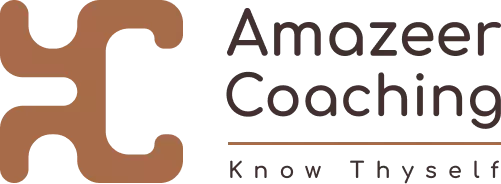As a follow-up to last week’s article, I wanted to write about our overwhelming tendency to live by “having” and how that shows up in our language. Indeed, how we speak is a reflection of how we live, and vice versa.
Fromm (“To have or to be” by Erich Fromm) makes an interesting comparison between how an individual would talk to a doctor a hundred years ago, and how that would sound like today. And the difference is striking (below is an adaptation from the text):
A hundred years ago, if a person were ill and went to the doctor, s/he would likely say something like this:
“Doctor, I am greatly troubled. Although I love my craft and I am in good health, I cannot seem to fall asleep and remain asleep. I do not understand why this is happening. I am happily married and live a wonderful family life. I cannot find an explanation for this and am hoping you can help me”.
An equivalent conversation today would sound closer to this:
“Hey Doc, I got issues. Although I have a great career and great health, I have a problem with insomnia. I don’t have a good explanation for this. I have a great marriage and my kids are great. So I don’t have a reason for this issue and I’m hoping you have a solution for me”.
Notice that all expressions of “being” are being replaced by “having”, and that “having” seems to pretty much dominate the conversation. Now you may ask: what difference does it make to say “I have insomnia” vs. “I cannot sleep”? Who cares? Well, dear reader, let’s experiment with this right now…
If you take a deep breadth, ground in your body, be present, then read the first paragraph to yourself: witness how you “live” these statements. Notice what happens in your body, mind, emotions and when you finish, notice how that experience landed on you.
Now, shake that off, take another deep breadth, and read the second paragraph with equal presence. How do these statements land on you? What do you feel in your body, mind, and emotions? How does it differ form the other experience? What have you noticed?
Typically, people report that using “having” language creates a distance from the experience. You may have found that the first paragraph seemed to be an intimate experience that is fully embodied and alive. While the latter may have seemed more distant, impersonal, demanding less participation from your being, even cold.
Another way of differencing the two is asking yourself which would you rather hear from your partner: I love you? Or, I have great loving feelings for you? I appreciate you? Or I have appreciation for you? I understand you? Or, I have understanding for you? Which seems more intimate, fulfilling and alive for you? And which seems more disinterested, detached, and dispassionate? If you are like most people, you would by far prefer the former statements, away from the “having” statements.
This shift in our language has taken centuries to take root but has certainly calcified since the industrial age where private property was a cornerstone of our new way of living. That being said, it is technically part of the larger phenomenon of moving away from “verbs” and embracing “nouns”. A shift that has started in the 17th and 18th century with the scientific revolution and age of enlightenment. Such periods have been marvelous giant steps for humankind. They have laid the ground to our post modern way of living and great material comforts. With such advancements, we have built sky scrapers, eradicated disease, been to the moon and back, connected the entire planet and made our lives plush and enjoyable. However, when we embraced this revolution fully and without limits, we may have thrown the baby with the bathwater…Perhaps in the process we have inadvertently strayed from our inner worlds, personal experiences, and emotional lives. Perhaps we have unknowingly sacrificed our intimacy with ourselves and each other. Perhaps by moving away from “being” and exclusively living by “having” we have grown distant to the alive process of life, growth, evolution, and numinous activity and creativity.
To say that it can be either or is a false choice. Is there not a middle way to get closer to ourselves and each other while embracing the technological magnificence of our age? Do we not trust that we have the discernment to make the right choices to get us to a well balanced life that is materially comfortable yet psychologically balanced and healthy? Could this be the sine qua none to our next evolutionary step as human beings? Perhaps the pendulum swung too far the other direction and it is the task of our generation to think, feel into, imagine, and bring about the next evolutionary way of living that embraces both our technologies and scientific knowledge while honoring and supporting our inner lives, emotional health, and bio-relational spaces. Food for thought…keep walking your life, dear reader 🙂

